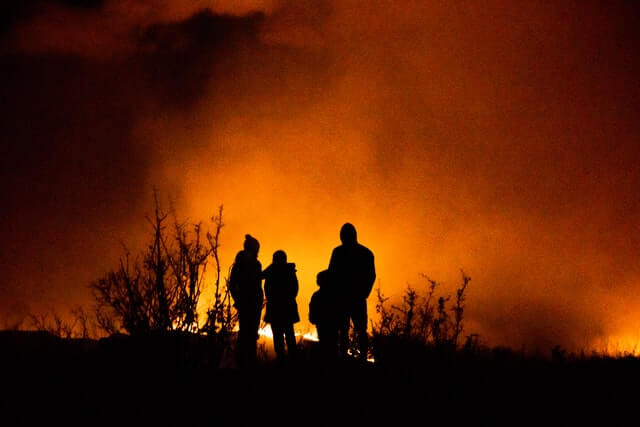The best time to prepare for an emergency is before one occurs

With the fire season looming, temperatures roasting our region's landscape, and plenty of irrigation that can be used as fuel, firefighters across the Bay Area prepare for what is expected to be a busy year. Rental housing providers should have an emergency preparedness plan in place, as well.
Tenants should be aware of where all fire extinguishers are located on the property, as well as breakers and electrical panels in the event that the power needs to be shut off.
An evacuation plan should be put into place with tenants cognizant of all methods of egress, perhaps with a diagram. It may be prudent to designate who's in charge of the situation and delegate responsibilities in the event of an emergency. There is, candidly, a difference between management and leadership.
For those of you with multi-family dwellings in an area considered to be a high fire risk, understand there may be an inconvenient but necessary preventative measure called a Public Safety Power Shutoff (PSPS) to keep residents safe.
By going to prepareforpowerdown.com, you can sign up to receive real-time PSPS alerts. Tenants should be encouraged to visit this website, as well, and this is accessible to residents even if the electric bill is not in their name.
When disaster strikes, refer to one place for information
We are real sticklers for documentation at Bornstein Law and can usually get a gut feel on how organized our clients are when they come into our office. Some have a meticulous accounting of rents and receipts, a detailed chronology of tenant communication, a log of repair requests, and so forth. Other clients, not so much.
Landlords and property managers should understand that if there is an emergency that occurs in a rental unit, it is imperative to have a reliable easy-to-access repository of information. A trusty list that contains the contact information of insurance agents, local authorities, property managers, government officials, first responders, towing companies, business partners, and of course, a current roster of tenants.
This can be as primitive as a binder with all of the information you need at your fingertips, but there is a concern that it may not always be immediately accessible. For those of you who are tech-savvy, we strongly recommend that this information is stored in the “cloud.” Meaning it can be retrieved anytime, anywhere on the Internet, on any device.
Having fluid communication with tenants in the event of an emergency
During a crisis, it may be manageable to communicate one-on-one with tenants when there are just a handful of residents in, say, a duplex, triplex, or four-plex. Where it gets more difficult to disseminate updates is when there is a large building with many units.
If there are simply too many people to communicate in a back-and-forth fashion, we recommend that as part of an emergency preparedness plan, residents are told well in advance that they can receive updates on social media. There is also a plethora of technology that can send emails and text messages en masse.
Now is a good time to remind tenants about the value of renters insurance
When there is a catastrophe, renters insurance can cover many personal possessions of the tenant, but we have always been in favor of renters insurance from a landlording perspective. For one, it shields the landlords from liability in certain instances when there is an accident or mishap in the rental unit.
Two, while every individual is different and we can’t paint everyone with a broad brush, we can say that generally, those tenants who obtain renters insurance are better custodians of the rental unit. It shows that they care.
